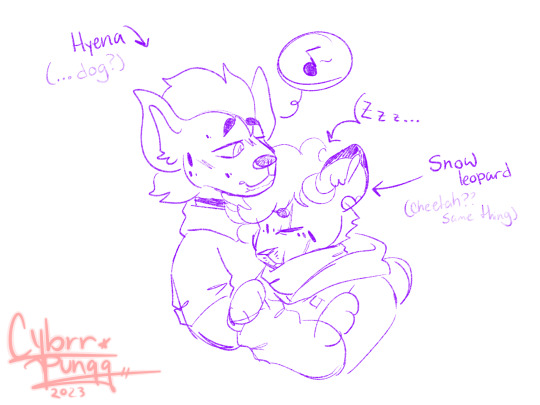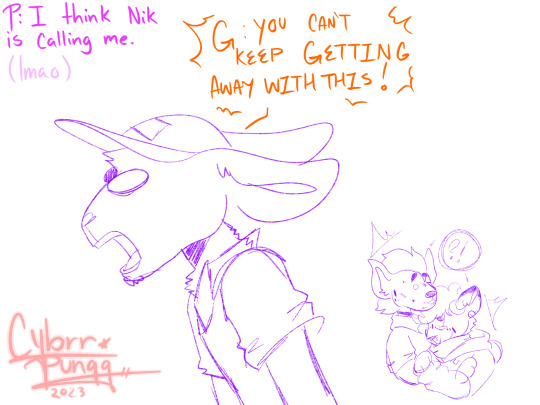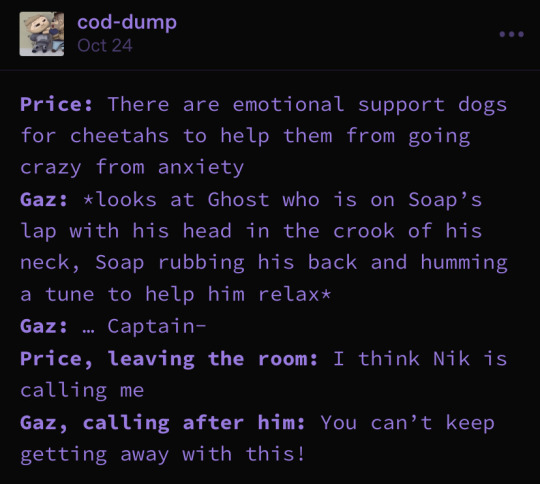#reject drawing people embrace 2015 me and draw characters as ANIMALS
Text






i’ve had artblock for like 4 months now so i dont like this all that much but here we are anyways‼️
og / inspiration by @cod-dump and this post:

#ghouly doodles#art#digital art#reject drawing people embrace 2015 me and draw characters as ANIMALS#cod#cod soap#cod ghost#cod gaz#cod price#cod mwii#au but kind of not really#fanart#?? yeah i think
265 notes
·
View notes
Text
'Boys have role models, why shouldn't we?' How female superheroes like Captain Marvel are filling a void
There's a scene in the new film Captain Marvel in which the titular Captain, played by Brie Larson, is facing certain adversity. To draw strength, she experiences a flashback to all the times in her life when she was knocked down and told to quit because, well, she was just a girl.
youtube
You can also see the moment in a teaser trailer, which shows the young character getting knocked down over and over again, only to turn and give the camera that defiant superhero stare: a look that says, no matter how big the odds stacked against the character, they will overcome them. It's an image we've all seen before, but for such a cliché, it's a scene we don't see given enough to women onscreen, let alone female superheroes.
"You don't often see a movie in general with such a strong female lead, so seeing that really hit home for me," says Saara Chaudry, 14, a contributor to CBC Kids News who saw an advance screening of Captain Marvel. "It made me feel warm, knowing that women were being represented in this light, but at the same time it spoke to personal experiences that I've had. It had me on the edge of my seat really just thinking about every time that I've been knocked down."
That sentiment was certainly intentional, according to Anna Boden, who co-wrote the film with Ryan Fleck. "As she gets to know herself and embrace what makes her her, she really achieves her true power," Boden told the New York Times, of the character. "Part of that means rejecting the voices of people who tell her she's not strong enough and doesn't belong. I feel like a lot of people will be able to relate to that, particularly women."
Captain Marvel is the 21st movie in the Marvel Cinematic Universe, and yet is only the first film to be centred around a female superhero. DC Entertainment beat Marvel to the punch by two years with Wonder Woman, the Gal Gadot-starring box office and critical juggernaut that is still one of the top-grossing films to come from the DC Universe (a sequel is already slotted for 2020).
Two films in two years may not seem like a lot — it's not — but to put it into perspective, it was only in 2015 that a leaked email from Marvel chairman Isaac Perlmutter revealed his distaste for female superhero films, citing Supergirl (1984), Catwoman (2004) and Elektra (2005), blaming them for poor box-office performances and calling them a "disaster."
Wonder Woman's success certainly helped to open the door a crack, but the fact is, in the 10-plus years that we've been immersed in the current superhero boom, the lack of films centred on female characters has had a negative effect on young women.
SuperPowering Girls
In a study published last year called "SuperPowering Girls," conducted by the Women's Media Center and BBC America, researchers found that representation on film matters, especially when it comes to superheroes. Seeing female superheroes makes girls feel more "strong, brave, confident, inspired, positive and motivated," it states. Almost 2,500 participants were surveyed, male and female, including kids between the ages of 10 and 19 and parents of children aged five to nine, who answered on behalf of their children.
Among young boys, almost half (49 per cent) cited male sci-fi/supeheroes as a top role model. For girls, that number dropped to just 21 per cent. And yet, outside of the family, parents of young girls said they were most likely to look to superheroes as role models, with Wonder Woman being the top choice for girls, followed by Supergirl. A full 65 per cent of girls said there were simply not enough female superheroes. In fact, one question that both boys and girls overwhelmingly agreed on was that there needs to be more female heroes.
Big heroes, small screens
While the big screen has been slow to give female heroes their spotlight, it's a different story on the small screen. DC's Supergirl has been on the air since 2015, and is currently in its fourth season on the CW Network. Batwoman, another CW show, is also in the works, while Marvel's Jessica Jones will see its third and final series air on Netflix this year.
While all those shows appeal to a decidedly older audience — anywhere from young adult to adult — an animated series geared towards even younger fans has been successfully running on YouTube since 2015. DC Super Hero Girls features short episodes, often under five minutes, focused on the young lives of various female heroes, such as Wonder Woman, Batgirl and Supergirl, as they navigate their way through school. On March 8, DC Super Hero Girls will relaunch as a full-length series on the Cartoon Network, created by Lauren Faust (My Little Pony: Friendship is Magic, The Powerpuff Girls).
youtube
Tara Strong, who was born in Toronto but lives in Los Angeles, has been a voice actor on the show since the beginning, and will voice Batgirl and Harley Quinn for the series relaunch.
"I was always drawn to these strong female characters, so it feels like such an honour to be able to play them and inspire young girls and boys," she says. "These are super strong characters that are smart and conscientious and care about friendships and, you know, use their brains."
I remember loving the Wonder Woman show with Lynda Carter, I loved the Wonder Twins cartoon, and I remember that what we had was good, but it's so nice to have what we have now.- Tara Strong, voice actor for DC Super Hero Girls
Strong says that representation of female heroes has come a long way since she was a kid, and points to the current boom as having a positive effect on young fans.
"I remember loving the Wonder Woman show with Lynda Carter, I loved The Wonder Twinscartoon, and I remember that what we had was good, but it's so nice to have what we have now," she says. "It's a huge improvement, especially on the female empowered characters."
Related: Tara Strong on living with Batgirl and Harley Quinn in her head
Strong adds that female superheroes have "become more sophisticated" over the years, and "as a whole been given a lot more to do, more powers, more voice in everything that they're doing. I think it's just sort of how the times have changed. DC has always been pretty conscientious about changing with those times."
While DC was certainly the first to give more screen time to prominent female heroes, if Captain Marvel is also a success, we can only expect to see more from that camp as well. Judging by future projects, the studio already seems to be banking on female heroes for its post Avengers: End Game rollout, hiring director Cate Shortland to helm a long-rumoured standalone movie for Scarlett Johansson's character Black Widow, which includes a script from Jac Schaeffer, one of the women on the writing team for Captain Marvel.
For young women like Chaudry, it couldn't be soon enough.
3 notes
·
View notes